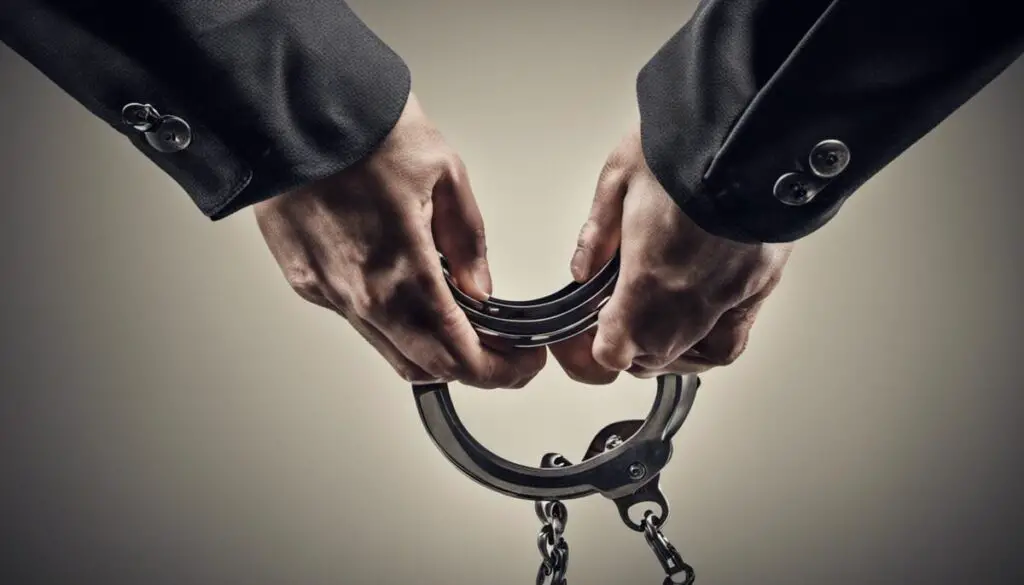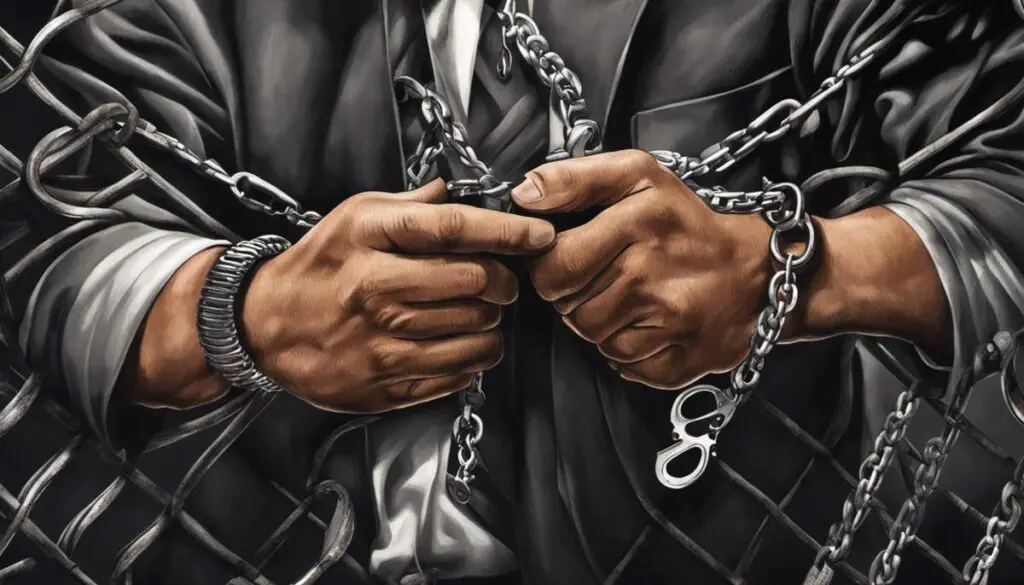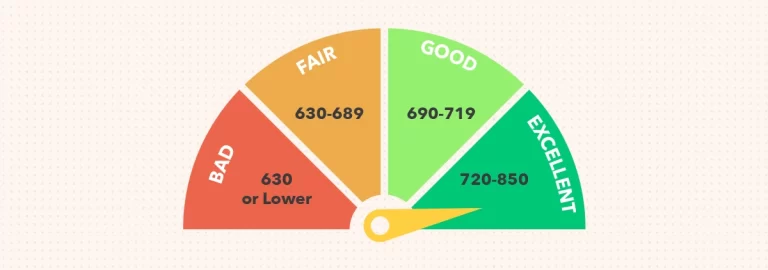HOW DOES A FELONY AFFECT YOUR LIFE
When a person is convicted of a felony, it inevitably creates a large ripple effect into all aspects of the individual’s life; from legal consequences on to employment prospects, dealing with societal perception and stigma, all the way down to mental/emotional stress and damage it does to one’s confidence (it erodes).
In this post, we explore the consequences of a felony conviction, allowing us to understand the many challenges and barriers that convicted felons face on a daily basis, as well as the need for informed solutions to enable a successful transitioning back into society.
WHAT ARE THE LEGAL CONSEQUENCES OF A FELONY CONVICTION
The legal consequences of a felony conviction are significant, extending far beyond the immediate penalties such as prison sentences, fines, and probation. Felonies, which are the most serious of crimes, typically carry significant penalties, ranging from one year in prison to life imprisonment, and even capital punishment. These sentences depend on the nature and severity of the offense.
Moreover, there are also financial ramifications associated with a felony conviction. Convicted felons can be ordered to pay fines, restitution (money paid to victims to compensate for damages caused by the crime), or both. The amount of these fines depends on the nature of the felony, the existence of previous convictions, and several other factors.
Probation and Parole Conditions
Probation and parole are alternatives to imprisonment but come with their own set of restrictions. Probation is a period of supervised release that is typically enforced during the entire sentence. Conditions of probation can vary greatly but often include regular check-ins with a probation officer, mandatory community service, drug testing, counseling, and the requirement to hold steady employment.
You may also want to check out this post… WHAT AM I NOT ALLOWED TO DO ON PROBATION?
On the other hand, parole is a conditional release from prison before the end of a sentence term. Like probation, the conditions of parole can severely limit an individual’s freedom. These conditions can include regular meetings with a parole officer, restrictions on travel, mandatory employment, and prohibitions against associate with known criminals. Violation of these conditions can lead to re-arrest and a return to prison.
You may also want to check out this post… DOES BEING UNEMPLOYED VIOLATE PROBATION
But Wait, There’s More…
The repercussions of your felony are not just associated with legal penalties. Instead, the consequences seep into an individual’s personal and professional life, often for good. From gaining employment, securing housing, restricted voting rights, and more, a felony charge considerably undermines all these aspects. In an era where background checks are routine, many employers and housing authorities hesitate to trust an individual with a criminal record.
Voting restrictions further impede on a felon’s civil liberty. While incarcerated, on parole, or probation, felons are often barred from voting. Alarmingly, a few states even enforce a perpetual voting ban for specific felonies. This infringement of rights affects an astounding number of US citizens, raising pressing civil rights concerns.
You may also want to check out this post… WHICH STATES ARE BEST FOR A CONVICTED FELON?
Additional deterrents for felons include barriers to gun ownership, jury service eligibility, and holding public office. Securing professional licenses also become increasingly challenging, and certain employment types may become virtually unreachable. Moreover, the implications of a felony charge can permeate into personal realms like child custody decisions and immigration status, possibly culminating in deportation.

WHAT IMPACT DOES A FELONY HAVE ON EMPLOYMENT
Securing employment and furthering a career when you own a felony record is a challenge of enormous magnitude. You see, despite the existence of anti-discrimination practices, its effectiveness in eliminating prejudice towards an individual with a felony conviction seems to go unnoticed, as bias among employers forms the main hurdle.
Traditionally, employers perceive those with criminal records as potential threats, unreliable or dishonest. This generalization exacerbates the stigma around felons paving a way to minimal job openings (and low wage-paying ones at that) for these individuals.
In a society where an individual’s past is open to scrutiny through background checks, a criminal record potentially acts like an iron door, closing many opportunities.
Hiring Policies and Felony Convictions
Different companies have distinct hiring policies, and some are stricter than others when it comes to hiring individuals with criminal records. Some industries categorically bar employment to felons, significantly reducing the number of possible jobs. Professions in healthcare, education, finance, and law enforcement typically have stringent background check policies.
Even when an individual is considered for employment, the type of felony conviction can have a major impact. For example, an offense involving theft or dishonesty could disqualify an individual from a job that requires handling money or sensitive information. A violent offense might make employers hesitant to hire for roles that involve close interaction with customers or clients.
Felony Conviction Impact on Career Growth
A felony conviction can also hamper career progression. In addition to the initial difficulty in securing a job, individuals with criminal records may find it harder to receive promotions or assume leadership roles, regardless of their job performance or skills. They may also find difficulties securing professional licenses or certifications.
Offenders under probation or parole may also have restrictions on job traveling or late schedules, which could limit job opportunities or promotions involving such requirements. Since these individuals may also lack professional connections who can vouch for their skills or character, networking—which can play a crucial role in job advancements—may be more challenging.
Anti-Discrimination Laws and Reality
While there are anti-discrimination laws, such as the Fair Chance Act or Ban the Box, that are designed to prohibit employers from asking about criminal history during initial job screenings, these laws vary greatly between states—and may not always be effectively enforced.
The Equal Employment Opportunity Commission (EEOC) provides some protections, but again, enforcement is inconsistent, and many individuals are not aware of their rights under these laws.
The ramifications of a felony conviction extensively impede an individual’s professional pursuits, imposing barriers to employment and limiting opportunities for career advancement. Despite the existence of legislation intended to prevent discrimination against felons in the hiring process, these laws often prove insufficient in real-world scenarios.
Employees with a felony record frequently face prejudice, shame, and obstacles to career progression. Nonetheless, as societal attitudes continue to evolve and there’s an increasing emphasis on the potential for acceptance, these injustices may gradually come to change.
You may also want to check out these other posts:
- WHAT IS A SECOND CHANCE EMPLOYER
- CAN A FELON BE A REAL ESTATE AGENT
- CAN A FELON LIVE IN THE SAME HOUSE WITH SOMEONE WHO OWNS A GUN

SOCIETY PERCEPTION AND STIGMA OF A FELONY CONVICTION
The public perception of those with a felony conviction is generally that of negative. This judgment is based on sources such as the nature of the crime committed, how the media presents cases involving crime, and the public’s individual attitudes toward criminal punishments.
It is not uncommon for those who have committed felonies to be labelled as risky, dishonest, or beyond redemption, regardless of their efforts to change, grow, and rehabilitate.
The Stigma Attached to Felonies
Associated stigma can often be one of the most damning aspects of a felony conviction. An individual who was convicted of a felony may suffer from the public’s preconceived notions, causing them distress and potentially leading to a lower quality of life.
This stigma can make it difficult for individual to reintegrate into society, even after they’ve served their sentence. They may face discrimination in various areas of life, such as employment, housing, and interpersonal relationships.
You may also want to check out: CAN FELONS HANG OUT WITH OTHER FELONS?
The Impact of a Felony Conviction on Employment Opportunities
People with felony histories often encounter significant challenges when seeking employment. Many employers can be hesitant to hire individuals with a criminal record, in fear of potential liability or negative impact on the business’s public image. This discrimination often results in a vicious cycle where lack of legitimate employment opportunities leads to financial instability, possibly pushing the individual back into criminal behavior.
Housing Discrimination Against Convicted Felons
Similar obstacles exist for housing opportunities. Many landlords and housing authorities conduct background checks and may refuse to rent to individuals with a criminal history. They may cite concerns about safety and property value. This often leaves individuals convicted of a felony with very limited – and often substandard – housing options, which can further complicate their return to normal life.
You may also want to check out… CAN YOU RENT AN APRTMENT WITH A FELONY?
Social Ostracization and Marginalization
Apart from all these consequences, felons often experience a profound sense of social isolation. The stigma associated with a felony conviction can lead to being ostracized and treated like a pariah from family members, friends, and society at large. This sense of treatment can be debilitating, making the process of reintegration much more difficult than it needs to be.
The implications of a felony conviction are far-reaching, going beyond time spent incarcerated. Job opportunities are often limited, and housing discrimination becomes an all too real concern, subsequently leading to a significant alteration in an individual’s life.
Social stigmatization and curtails on civil rights can contribute to a progression of hardship, marginalization, and potential reoffending. This underlines the critical necessity of support systems and policies that prioritize rehabilitation and successful reentry into society for those with a felony conviction.

WHAT ARE THE PSYCHOLOGICAL EFFECTS OF A FELONY CONVICTION
What are the Mental and Emotional Consequences of a Felony Conviction?
Being convicted of a felony significantly increases a person’s stress levels. Multiple factors contribute to this, such as the financial constraints of legal costs, the emotionally challenging time spent in prison and subsequent anxiety surrounding the process of transitioning back into society and everyday life. Such enduring stress can make the person more prone to mental health issues.
Depression is a frequent mental toll experienced by felons, often stemming from feelings of remorse, memories of prison life, or the struggles of adjusting to life after incarceration. This state of despair may lead to a loss of motivation or direction, potentially deepening the mental health crisis being experienced.
You may also want to check out: WHAT DOES PRISON DO TO YOUR BRAIN?
Those with a felony conviction are often plagued by anxiety disorders too. Uncertainty about their future, job stability, and the fear of societal judgment can create a persistent state of anxiety. This relentless stress can negatively impact their physical health, causing problems such as insomnia, muscle tension, and elevated blood pressure.
What Kind of Impact Does a Felony Conviction Have on Personal Relations?
A felony conviction can profoundly affect personal relationships. Many felons find that, post-conviction, their relationships with family and friends are strained or even completely severed. The embarrassment, shame, or stigma associated with having a felony can lead to isolation and a breakdown in communication. Consequently, this feeling of isolation can further fuel negative psychological impacts such as depression and anxiety.
The strain on relationships is not limited to familial and friend circles. Convicted felons may also find difficulties in forming romantic relationships due to societal prejudice. The fear of judgment or rejection due to their criminal past can create a constant state of guardedness and hinder trust-building, which is critical in any relationship.
What Does a Felony Conviction do to an Individual and their Self-Esteem and Confidence?
Following a felony conviction, individuals often grapple with negative self-esteem and self-image issues. They may begin to see themselves only through the lens of their conviction, leading to an internalization of the criminal identity. Society’s stigma and negative stereotypes of felons can further feed into these negative self-views. Many individuals view themselves as a “loser” and struggle with any semblance of self-worth.
Individuals with felonies may feel worthlessness or experience a decreased sense of personal value, leading to self-esteem issues. They may feel they have lost their place in society or will never fully be accepted again. These feelings can be highly detrimental to their psychological state, overall happiness, and quality of life.
Having a felony involves more than just legal consequences. It can also lead to mental health challenges, such as anxiety, depression, and an increased likelihood of substance abuse. Some felons may resort to drugs or alcohol as a way to cope with their emotional trauma, societal exclusion, and overall negative feelings associated with their crime. This push towards substance abuse can often spiral into addiction, further impeding their health, personal lives and effort to rejoin society after their sentence.
Moreover, some individuals who have been incarcerated and have a felony on their record, might suffer from Post-Traumatic Stress Disorder (PTSD) stemming from their time behind bars. PTSD is a significant mental health condition requiring professional support and treatment, underlining the crucial need for mental health services tailored to former offenders.
Conclusion
The lifetime consequences and stigma surrounding a felony conviction present a grueling journey for an(y) individual to contend with. Dealing not only with the legal repercussions, but also a change in societal perception, limited employment opportunities, and tremendous psychological toll, they are faced with an uphill battle. However, acknowledging this challenging path of rehabilitation and reintegration gives a vision for a possible reformed life. With the right resources, support systems, and opportunities, a convicted felon can achieve transformation, leading to a greater quality of life filled with redemption and second chances.
-The Educated Felon







